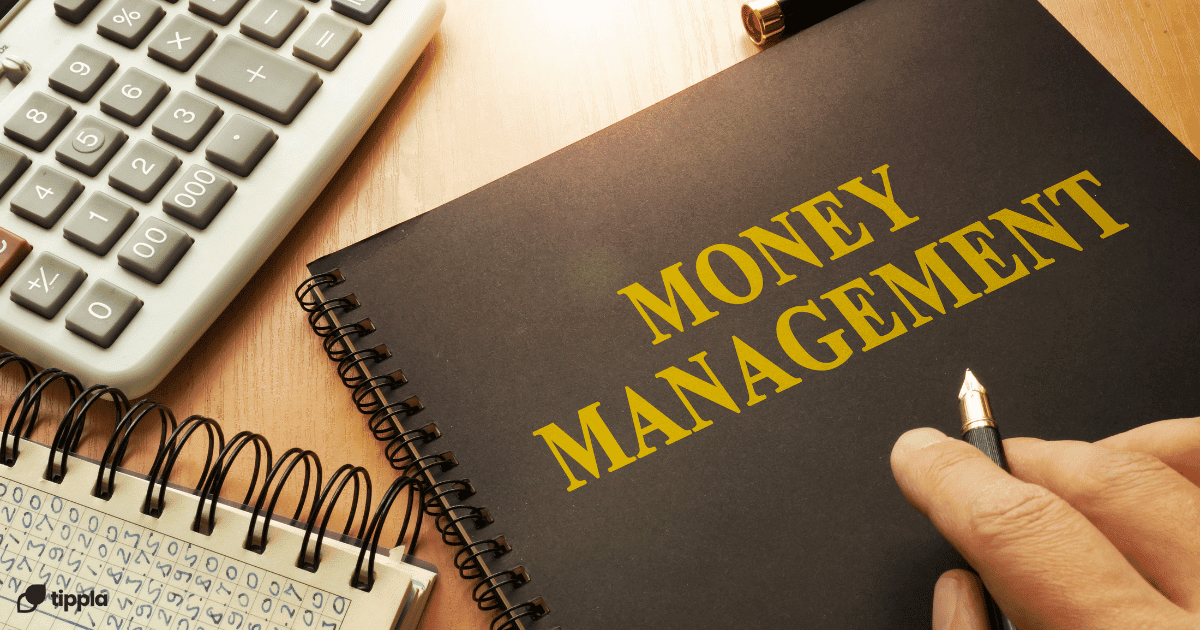Published in July 18, 2023
How to understand your Equifax score

What does my Equifax score mean?
Ah, your Equifax score. It’s the small, three or four-digit number that often stands between you and your financial freedom. Maintain a good score and it’ll make life a hell of a lot easier when you need to get approved for a loan. Let your credit slip though, and it can leave you momentarily hamstrung – unable to access the money you need or forcing you to lean on more expensive (often less trustworthy) lenders.
Why your credit score matters
If you’ve ever applied for a credit card, a personal loan or a home loan, you probably already know just how vital your credit score is. Yet, despite its importance, most of us know more about how our Uber rating works than our credit rating – especially when it comes to how the number is calculated.
If you’re reading this, then chances are that’s why you’re here.
Equifax is one of the three major credit reporting agencies in Australia. That means, they’re more than likely the guys behind your credit score. How did they calculate it? What does it mean? How can you change it? These are the questions we’re here to answer.
So let’s take a look at all there is to know about your Equifax score, and how you can ensure it works for you, not against you.
Equifax scores 101
Equifax (formerly known as Veda) is one of the largest consumer credit reporting agencies in the world, and by far the largest in Australia. So, if the name sounds familiar – that’s probably why!
An Equifax score is given on a scale of 0 to 1200, 0 being the worst and 1200 being the best. In a nutshell, credit scores are designed to neatly summarise your financial responsibility in a single number. Agencies like Equifax analyse your financial history and use this data to assign you a number that reflects just how good you are at managing your money. Your score is meant to indicate your risk level to lenders and predict the likelihood of you keeping up with repayments on a new credit card or loan.
Of course, your Equifax Score isn’t the only factor banks and lenders might take into consideration when reviewing your finance application. It just happens to be a very important piece of a much larger puzzle.
Key contributing factors
So, what actually contributes to your final credit score? While the actual mathematics are too complicated to get into here, let’s look at a typical breakdown of the different things Equifax takes into account.
Bill payment history (35%)
The single most important factor in the calculation of your credit score is your bill payment history. It accounts for a little over a third of your final figure, so timely payments are crucial here. If you’re always late to make your repayments on a credit card or a loan, this will definitely bring your credit score down. More serious issues like charge-offs, debt collections, repossessions, tax liens, foreclosures or bankruptcy can be even more disastrous. So, it’s important to stay vigilant!
Level of debt (30%)
The second most important factor is your level of debt. Equifax will take into account the overall amount of debt you have, your ‘credit utilisation’ (the ratio of credit card balances to credit card limits), and the ratio of your loan balances to the original loan amounts. In other words – how much you’re borrowing and how quickly you’re paying it off. To score well you should aim to pay down your debts as quickly as possible and work to keep your credit utilisation as low as possible (ideally under 30%).
Age of credit (15%)
Here, Equifax will ask questions like – how old is your oldest credit account? And, what is the average age of all your credit accounts? The answers to these will offer insights into how experienced you are at handling your debts. A long-held account may suggest reliability, especially if repayments have been regularly met over time. All banks and lenders will be looking for this trait in their prospective borrowers.
Mix of credit (10%)
The greater the mix of credit on your credit report, the better it is for your score. It’s good to show experience in responsibly holding both instalment accounts (loans) and revolving accounts (credit cards). Holding loans for a wide variety of assets – higher education, a car and a home, for example – will also work in your favour, provided they are faithfully repaid.
Credit enquiries (10%)
The final factor is a tripping point for many, particularly those with a low credit score. Every time you submit an application that requires a credit check, a note is placed on your report. If multiple notes are placed on your report over a short period of time, say a handful within the space of a month or two, points will begin to be deducted from your score. Since lenders will always check your credit report, it’s wise to keep your applications for finance to a minimum and wait for an answer on one before you apply with another.
Why does my score change?
Your credit score will change because there are so many factors that are considered when calculating your score, there are many reasons why your score may have changed. A few of the more common reasons for score fluctuations are:
- You submitted an application: A recently approved credit card or loan application can strengthen your score, while a recently denied application or the submission of multiple applications in a short amount of time can damage it.
- You changed your credit limit: Altering the terms of your current credit cards or loans can also change your score. Increasing your credit card limit or applying for a personal loan top-up may decrease your score, while decreasing your limits can increase your score.
- You cancelled a credit card or paid off a loan: Unsurprisingly, paying off debt and streamlining your finances can improve your credit score.
- A credit provider gives new information: Credit providers don’t immediately pass all of their information onto Equifax. It can take time for data to appear on your report, which can result in your score changing at seemingly random times.
- A listing expired on the report: All the information on your credit report has an expiration date. Depending on the data that is removed, it may affect your score in a positive or negative way.
- You paid a bill late: Your credit score may drop if you don’t pay a bill or make a monthly repayment on time. On the flipside, an individual with a low credit score may be able to increase it by paying bills and making repayments on time.
How often does my Equifax score get updated?
The short answer is your credit score is updated every time it’s calculated, i.e. whenever someone views your credit report. But that doesn’t mean that it changes from minute to minute, day to day.
Most of the time, your Equifax Score is updated monthly. This is because most creditors supply Equifax with new information on a monthly basis. While your score may change when that information is provided, it generally comes in at around the same time – at the start of a new month – so you can expect your score to remain relatively stable in the meantime.
The key differences between a ‘report’ and ‘score’
What’s the difference between a credit report and credit score? In truth, not much – they essentially offer the same information just in different forms:
- Your credit report provides a comprehensive overview of your finances – your lines of credit, your payment history, and any other details relevant to your ability to manage credit and debt.
- Your credit score condenses this information down into a simple number between 0 and 1200 to indicate how much of a risk you represent as a borrower.
If someone uses the term credit rating, they simply mean credit score. These terms are used interchangeably here in Australia, so it can get confusing depending on where you’re getting your info from. The key thing to remember is the difference between a report and a score/rating, understand that and you’ll be set.
What do the different score ranges mean?
Equifax divides their credit scores into five brackets. Your credit score will fall into one of these ranges, so here’s a quick explanation of each:
| Rating | Score | Reasoning |
|---|---|---|
| Excellent | 833–1200 | Scores of 832 or above are in the top 20% of Equifax’s active population. The organisation calculates that the odds of keeping a clean credit file are five times greater than the average individual. The numbers suggest that it is highly unlikely that any sort of adverse event (from failing to make repayments to personal bankruptcy) will occur in the next year, making these individuals prime candidates for banks and lenders. This is where you want to be. |
| Very Good | 726-832 | While not at the very top of the pile, scores in this range are still comfortably above average. Equifax calculates that individuals in this range are two times more likely than the average individual to keep a clean credit file. The numbers suggest that it is unlikely that any sort of adverse financial event will occur in the next year. So if you’re here, hang tight! |
| Good | 622-725 | Scores in this range sit just above average. Equifax calculates that individuals in this range are slightly more likely to keep a clean credit file than the average individual. The numbers suggest that it is less likely that any sort of adverse financial event will occur in the next year. This isn’t a bad place to be, but there’s certainly room for you to improve. |
| Average | 510-621 | Scores in this range are rated average, meaning that Equifax calculates the odds of keeping a clean credit file as average. The numbers suggest that it is likely that an adverse financial event will occur in the next year, which may make it harder for you to gain approval for a credit card or loan. If you fall into this bracket, it’s time for you to do a serious spring clean of your finances! |
| Below Average | 0-509 | Scores of 509 or below are in the bottom 20% of Equifax’s active population. The organisation calculates that the odds of keeping a clean credit file are well below those of the average individual. The number suggest that it is more likely that an adverse financial event will occur in the next year, making it very difficult for your to be approved for credit or loans. This is the danger zone. You’ll need to implement some serious changes to get your score on the road to recovery. Fortunately, the only way is up from here! |
I don’t have a credit score – should I be worried?
No score is not the same as a score of zero, so there’s no need to panic if you’re new to lending. That said, if you don’t have any sort of personal credit or loan history, it’s impossible for Equifax to assess you as a borrower. If you haven’t had (or applied for) any of the following under your own name, you won’t have a credit score:
- A credit card
- A loan
- A mobile phone contract
- A utility account
Most lenders require an applicant to have some form of credit history before they will approve a credit card or loan application. The good news is, taking out a phone contract or putting a utility like power or water in your name, can help you to quickly build a healthy score. Especially if you pay your bills on time! So, maybe keep that in mind when you’re looking into your next phone plan.
Why you should care about your Equifax credit score
When most of us think of debt our mind wanders to sky-high interest, crippling repayments and maybe even a pair of concrete shoes if you disappoint the wrong creditor. Whether fact or fiction – credit and debt generally gets a bad rap.
In reality, access to money that you don’t have is vital for your long term financial security. Whether it’s a university degree, business capital or a place to call home, there are certain investments in life that the average Aussie can’t afford to pay for upfront but still needs to prosper in life.
A good credit score is vital if you are to seize new opportunities and secure these investments. So, if you take care of your Equifax Score now, you can be confident that it will take care of you later.
Meet Tippla
Do you want to check, improve and monitor your credit score? What if we said it didn’t have to cost you anything? That’s what you get when you sign up to Tippla!
Sign up to Tippla and let us help you reach your financial goals with our smart monitoring and insights. We compare your score from multiple reporting agencies to give you the best understanding of your credit.
While we at Tippla will always do our best to provide you with the information you need to financially thrive, it’s important to note that we’re not debt counsellors, nor do we provide financial advice. Be sure to speak to your financial services professional before making any decisions.
Related articles

The Economics of Buying vs. Renting a Home
09/12/2024
Australia’s housing market has long been a topic of...

7 Smart Ways to Manage Your Finances and Save on Fees
11/10/2024
High inflation and rising operating costs are just two...

Renters Insurance Declarations Page?
02/08/2021
What is a Renters Insurance Declarations Page? A renters...

The Pros and Cons of Reward Checking Accounts
03/05/2024
Reward checking accounts are different from traditional checking accounts....
Subscribe to our newsletter
Stay up to date with Tippla's financial blog